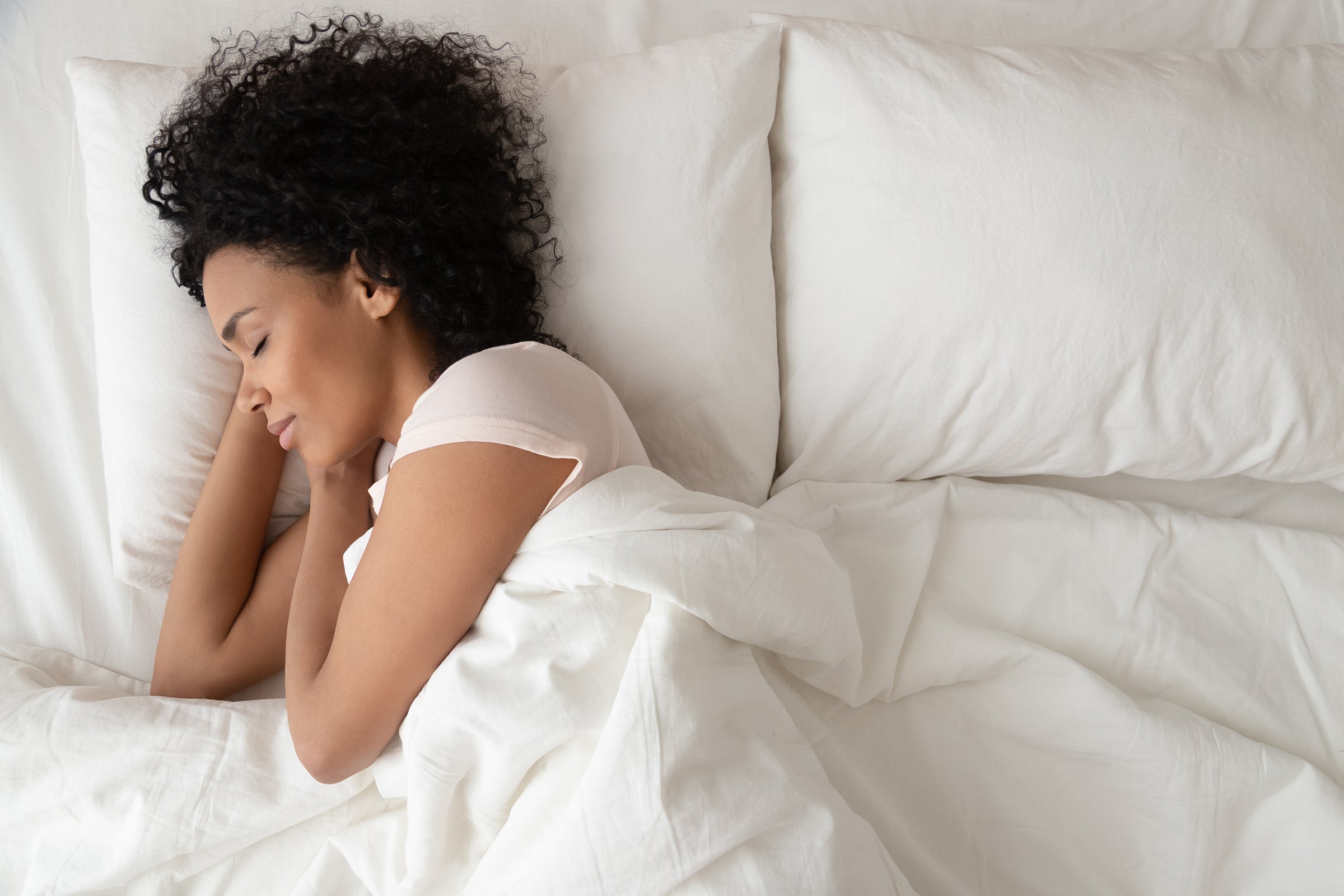Got Anxiety? Create a Soothing Sleep Routine

(Photo: fizkes / Shutterstock)
If you’re like a lot of people right now, anxiety may be causing you to toss and turn throughout the night. But sleep is essential to our health—without it we’re at increased risk of infections, diabetes, cardiovascular disease and obesity. And getting a good night’s rest can improve mood and emotional balance according to Matthew Walker, PhD, director of the Center for Human Sleep Science and author of Why We Sleep (Scribner, 2017).
Maybe we can’t make every night worry-free, but with the following suggestions for creating a soothing going-to-bed routine, we can improve our chances of getting those much-needed hours of sleep.
Keep your bedroom cool, dark, and comfortable
Screens—your iPad, laptop, television, phone—all emit light that has been shown to disrupt sleep. Make your bedroom a no-gadget zone and block out street light with shades. “Even a hint of dim light…has been shown to delay the release of nighttime melatonin in humans,” writes Walker, referring to the hormone that alerts our bodies to darkness, signaling that it’s time to sleep. For optimal rest, your mattress and pillow should be comfortable, and your bedroom temperature should be cool, according to Your Guide to Healthy Sleep published by the National Institutes of Health.
Create a transition time
“I don’t work or do anything on the computer past 8 p.m.,” says Kim Acosta, a working mother of two who, in spite of a complex schedule of family and work responsibilities has found ways to ensure a full night’s rest. She has an evening routine of sitting with her 13-year-old son while they each read their own books before going to sleep—a relaxing time for both of them. Instead of working or cleaning the house right up to the minute you hit the pillow, give yourself time to unwind and relax at the end of the day. Create a transition to sleep with activities such as taking a warm bath, playing music, writing in a journal, or doing yoga stretches.
Related: 11 Ways to Reduce Stress and Anxiety
Don’t let exercise or dinner ruin sleep
Getting exercise earlier in the day promotes good sleep, but if you work out just before going to bed, your body may be too revved up for restful sleep, according to Your Guide to Healthy Sleep. The same goes for eating—if you eat a big meal right before bed, indigestion might keep you up. Time these activities for early in the evening or at least two to three hours before bedtime.
Put off your worries
“When I start to worry about the next day, I don’t try to problem-solve in the moment,” says Acosta. “I tell myself ‘you’re equal to the task’ which seems to calm me. I think it’s my way of giving myself permission to not worry about whatever is bothering me at the moment and remember that it will all be fine tomorrow when I will deal with it.” Follow her lead and try putting your worries on a mental shelf until tomorrow.
Meditate
“The science is loud and clear: meditation and sleep make splendid bedfellows,” writes Ariana Huffington in her bestselling book, The Sleep Revolution–Transforming Your Life, One Night at a Time (Harmony Books, 2017). Huffington, who suffered from sleep deprivation for years, learned that making a mental gratitude list helped calm her mind at night, and that meditating eased stress. Need guidance? Check out apps such as Headspace, Cal, Noisli or Slumber, which offer guided meditations, soothing music, storytelling and nature sounds that can help you drift into peaceful, health-giving sleep.